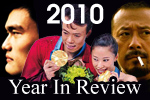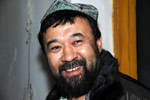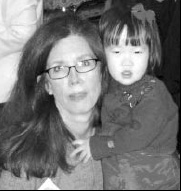US
Keeping Chinese traditions alive in an adopted land
Updated: 2011-02-04 11:08
By Kelly Chung Dawson (China Daily USA)
Organizations such as Families with Children from China (FCC) and the Gladney Center for Adoption will host annual new year parties, giving such families the opportunity to learn about Chinese traditions and spend time with similar families.
"Chinese New Year is about family and returning to roots," said Wendy Stanley, director of Gladney's China adoption program in New York.
|
|
Gladney's celebration will feature a local dragon troupe workshop with the children, performances by some of the children who take traditional dance classes, and the chance to make dumplings, Stanley said.
The party is not only organized by the agency, but also by parents who stay involved in Gladney's "parent associations", Stanley said.
Often, families which were grouped together on their original adoption trips will maintain friendships over the years. New year is an opportunity for those families to spend time together, and many will request to be seated together, Stanley said.
As the adopted children get older, some of these families even make trips to China together.
FCC's lunar new year celebration will feature lion dancers, Chinese fan dance instructions, crafts and bubble wrap fireworks.
Organizer Theresa Levine said when the children become teenagers, it's harder to get them to attend events.
"(My daughter) Lucy's schedule is very full from violin, soccer and other activities outside FCC," she said.
"When I try to organize an FCC event, I hear these sorts of excuses."
But for Levine, it's important Lucy knows and enjoys her American and Chinese heritages, she said.
Jodi Wynn, mother of 6-year-old Hayley, has made it a tradition to attend Gladney's annual party and other FCC events. Hayley's school now honors Chinese New Year, too, Wynn said.
"I always thought it was important for her to know where she came from, and celebrate all the Chinese holidays," she said.
"We do different activities with other families with adopted Chinese kids. We make lanterns, and we've read books about different things.
"Every year it's something new; every year she remembers a little more and she loves it."
Hayley has a few adopted Chinese friends she spends time with, Wynn said. She also studies Mandarin.
Families which live in cities such as New York and San Francisco also have more access to cultural resources, Stanley said. Gladney also has a center in Texas, and the difference in perspective between the two cities is vast, she said.
"Here in New York City we're a subway ride away from Chinatown or Flushing," she said. "The children who are adopted here take language classes, or traditional dance classes - but in Texas it's much more difficult to make Chinese traditions a part of daily life."
And then there are some who have it really easy, such as Peggy Kump, mother of 6-year-old Annie. The two live in Flushing, Queens, where Peggy teaches predominantly new immigrants at a local elementary school.
Annie's school is about 40 percent Asian, Kump said. Her babysitter is also Chinese.
"It's been a real blessing," Peggy said. "Annie has a really good sense of herself. She doesn't think of Chinese New Year as anything special, because it's something everyone does.
"We get to experience the full cultural spectrum."
Peggy and Annie will attend FCC's annual party, and have also celebrated at the Asia Society and China Institute in Manhattan.
Not many families with adopted Chinese children have the opportunity to live in a Chinese community. Peggy recalled her daughter playing with several other Asian children recently, and thinking to herself, "You don't know how good you have it".
"She has her whole life to be in the minority, and not by choice. I think it's important that she spend time with other kids like herself. She calls her adopted friends her 'Chinese brothers and sisters'."
Levine said she's made an effort to get Lucy to FCC events with girls her age and she's made friends.
"My guess is that she will be very happy to have her Chinese friends as she reaches her tweens and teens."
Stanley believes it's important for adopted Chinese children to spend time together because it's a chance as a group to celebrate being different.
"I think there are so many ways that we find commonality among our peers, even in the face of differences," Stanley said.
"Being adopted is a difference, and there's a real camaraderie among both the children and the parents."
China Daily
Specials

Spring Festival
The Spring Festival is the most important traditional festival for family reunions.

Top 10
A summary of the major events both inside and outside China.

A role model
Alimjan Halik had been selected as the "Cyberspace Personality Who Moved the Hearts of the Chinese in 2010".
